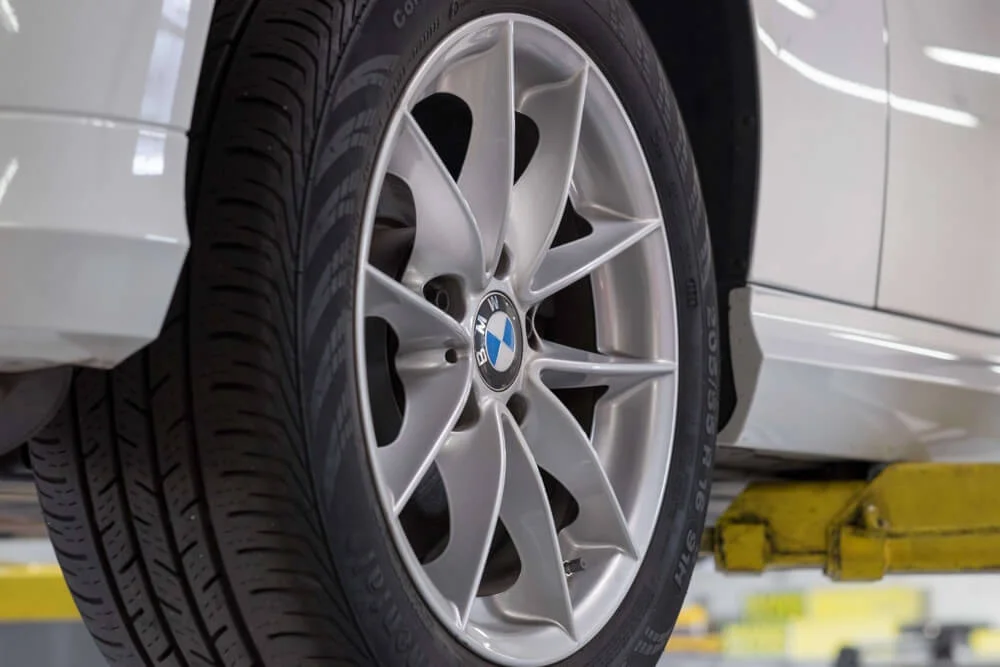BMWs are designed with performance in mind, so we understand the urge to push your coupe, sedan, or compact SUV to the limit. It’s important to remember, though, that driving habits greatly influence how long brakes last. If you’re the kind of driver who stops abruptly on a regular basis, you’ll probably need to replace your brakes pads and rotors more often than drivers who gently coast to a stop. Where you live is also a factor—stop-and-go city traffic is rougher on brakes than open country roads, and mountainous areas with steep downhills wear out brakes fast than a flat suburban landscape.
So how do you know when your BMW needs brake service? In general, brake pads should be replaced after 50,000 miles, but because driving habits and environments vary, you’ll want to watch out for other signs that service is due.
Low Pad Thickness Means Replace Your Brakes
Brake pads are made of metal shavings (copper, steel, graphite, and brass) bonded with resin, or copper flakes and filaments bonded with clay or porcelain. New pads have a standard thickness of about 10 and 12 millimeters, and the minimum pad thickness to retain safe braking ability is about 1 millimeter, but that doesn’t mean you should wait until then—pads should be replaced at around the 3-millimeter mark.
Scraping and Grinding Sounds on Your BMW Brake Pads
If you don’t check your brake pad thickness visually (you can see them through the rim spokes), don’t worry—the pads will let you know when they need to be replaced. Brake pads have small metal “hairs” built into the base, so when you pass that 3-millimeter level, the metal will scrape against the brake disc with a telltale screech every time you slow to a stop. If you happen to ignore the scraping, the next thing you’ll hear is the horrific grating of the pad base against the disc, which means you need to get to a BMW mechanic immediately.
Diminished Brake Performance in Your BMW
If you somehow manage to miss the sound of your brake pads scraping (most BMWs come with excellent stereo systems, so we understand), you can also feel when brakes need service. Jittery braking and pulsations through the brake pedal are good indications, along with your foot sinking to the floor when you apply the brakes. Also, if it feels like it takes longer distances to come to a complete stop, it’s time for a brake system service.
BMW Brake Warning Light Means Replace Your Brakes
Sometimes brake pads and rotors aren’t the problem. If the brake warning light—not the same one that illuminates when you apply the parking brake—comes on while you’re driving, it means your brake system is low on fluid. This could mean a top-off is in order, but it could also indicate a leak or a problem with the brake master cylinder.
Regular Check-Ups Can Catch BMW Brake Problems Early
Just as you see the dentist every six months for regular “maintenance,” your BMW needs regular maintenance too. When you come in for your six-month tire rotation, that’s a perfect time to have your brakes inspected as well. Whether your BMW needs regular maintenance, new brake pads, or other brake repairs, you can trust the experts at B and B Autohaus. We specialize in BMWs and only use BMW Original Equipment Manufacturer parts, so come in and see what our “Ultimate Driving Machine” experts can do for you.



